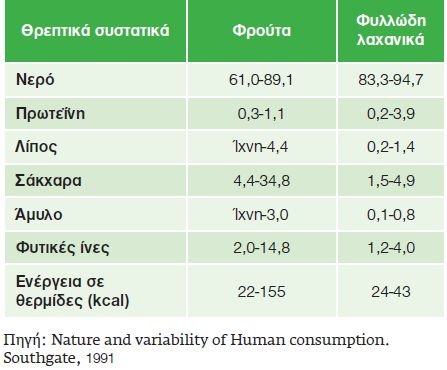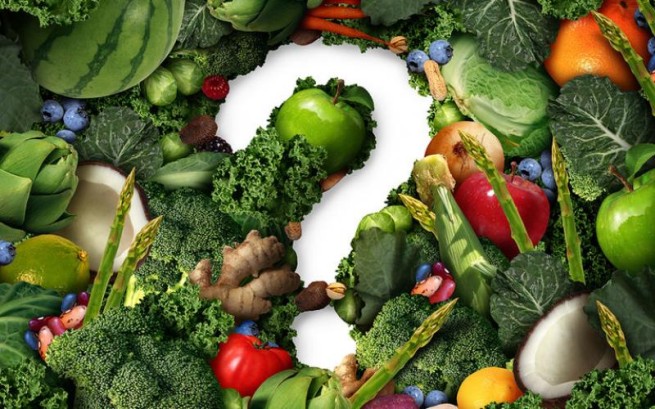Vegetables and fruits contain a lot of water and little protein and fat, and their main macronutrient is carbohydrates. They also contain vitamins, minerals, fiber and other substances necessary for the proper functioning of the human body.
Fruits and vegetables have the ability to strengthen the human immune system and protect the body from various diseases. The big plus is antioxidant content in vegetables and fruits – substances that slow down the aging process of the body. Consumption of fruits and vegetables, the ability to properly store and prepare them provide a person with good health, energy and attractiveness.
Sufficient consumption of vegetables and fruits has a beneficial effect on the entire body, improving the functioning of all metabolic processes, including metabolism, which allows you to feel better, be healthier, and your appearance will correspond to these positive changes. All this is explained by the content of vitamins in vegetables and fruits such as carotene (provitamin A), vitamins C, K and P; they also contain sucrose, fructose, pectins, fiber, starch, organic acids, mineral salts.
Of no less importance is the antibacterial effect of the so-called phytoncideswhich are contained in large quantities in garlic, onion and citrus fruits. Their use during a cold helps suppress the effect of pathogenic bacteria on the body, as well as reduce the number of microbes in the oral cavity.
Many types of vegetables are able to relieve the pressing effect of fats on the secretion of the stomach; in combination with fats, they also have a choleretic property. And, perhaps, the main fact indicating the benefits of vegetables and fruits is their ability to protect the body’s cells from disease and aging, thanks to the antioxidants they contain: beta-carotene (a form of vitamin A) and vitamin C.

Here are some interesting facts:
- In Greece, vegetable consumption (excluding potatoes and legumes) is estimated at 244.3 kg per person, and fruit consumption at 141.3 kg. kg. In 1961, vegetable consumption was 114.6 kg/person. and fruits 133.5 kg/person.
- Compared with other European countries and data obtained through the European Union-funded European Diet and Health Report, it appears that among 25 countries in 2003, Greece had the highest vegetable consumption (276 kg per person) and ranked 2nd after the Netherlands in terms of fruit consumption (147 kg per person).
- UThe level of education of Greeks seems to be related to the consumption of vegetables and fruits. Greeks with higher levels of education choose more fruits than those with lower levels, while the availability of vegetables, legumes and olive oil is the opposite.
Data on individual intake/consumption of vegetables and fruits were collected in the context of Greece’s participation in the multicentre scientific study EPIC.

Also interesting:
- Tomato is the most popular fruit in the world. There are more than 1000 varieties of tomatoes.
- Banana fiber can be used to make paper and fabric.
- The spiciness of a chili pepper is determined by its size: the smaller it is, the more hot it is.
- The most cold-resistant vegetable on the planet is Arctic horseradish. It retains the ability to bloom even in bitter frosts.
- Onions and potatoes do not tolerate each other’s proximity, and if you put them together, they quickly begin to deteriorate.
- Grapefruitsinteracting with certain medications can be fatal.
- Eating celery can cause you to starve to death. The fact is that this product burns more calories than it gives off, so your body has nowhere to get nutrients from. Nevertheless, celery is a healthy product, because it contains more carotene and vitamin E, which are beneficial for skin, nails and hair, than other vegetables.
- Vegetables have their own “astronaut”. Potatoes became the first vegetable grown in space. It was he who experienced weightlessness in 1995 while on the Columbia ship.
- Green peas have been known to mankind for more than 5,000 years. It became the first vegetable to be placed in a can.
- Onions were considered a sacred vegetable in Ancient Greece. The onion was a symbol of the structure of the Universe. This vegetable was eaten by both the poor and aristocrats. To drown out the smell, the onions were topped with walnuts and parsley.







More Stories
A dog with bat ears that costs more than 100,000 euros
Easter: 14 tips for the festive table
GMO Breakthrough: Pork Flavored Soybeans